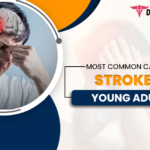What is The Treatment of Brain Tumor

The human brain, an intricate network of billions of neurons, governs our thoughts, actions, and emotions. However, when a sinister intruder like a brain tumor takes root, it can disrupt this delicate balance and pose a grave threat to one’s health.
A brain tumor is an abnormal growth of cells within the brain or the central spinal cord. This can be diagnosed through a combination of imaging tests such as MRI or CT scans, followed by a biopsy or surgical removal of the tumor for a definitive diagnosis. Treatment options for brain tumors may include surgery, radiation therapy, chemotherapy, targeted therapies, immunotherapy, or a combination of these approaches.
Types of Brain Tumors :-
Brain tumors can be classified into several types based on their origin, behavior, and location within the brain. Here are some of the common types:
· Gliomas:– This category includes tumors that arise from glial cells, which support and nourish neurons. Gliomas can be further divided into astrocytomas, oligodendrogliomas, and glioblastomas, with glioblastomas being the most aggressive.
· Meningiomas: These tumors develop in the meninges, the membranes covering the brain and spinal cord. They are typically benign but can cause symptoms if they grow large enough.
· Pituitary Tumors: Arising from the pituitary gland at the base of the brain, these tumours can disrupt hormone production and have a range of effects on the body.
· Metastatic tumors: Metastatic brain tumors are secondary cancers that originate elsewhere in the body (e.g., lungs, breast) and spread to the brain through the bloodstream, forming tumors within brain tissue.
Treatment of Brain Tumor :-
The treatment of brain tumors is a complex and multifaceted process that aims to eliminate or control the tumor while minimising damage to healthy brain tissue. The choice of treatment depends on several factors, including the type of tumor, its location, size, grade, and the patient’s overall health.
1. Surgery –
Surgical removal of the tumor, if possible, is often the initial treatment. Neurosurgeons work to excise as much of the tumor as safely achievable while preserving critical brain functions. Some tumors may be inoperable due to their location or the risk of causing neurological deficits.
2. Radiation Therapy –
Radiation uses high-energy beams to target and destroy cancer cells. It may be employed after surgery to eliminate any remaining tumor cells or as a primary treatment for tumors that cannot be surgically removed.
3. Chemotherapy –
Chemotherapy involves the use of drugs to kill or slow down the growth of cancer cells. It can be administered orally or intravenously and is sometimes used in combination with radiation therapy.
4. Targeted Therapies –
These medications specifically target molecules involved in tumor growth, minimizing harm to healthy cells. They are particularly effective for certain types of brain tumors and often have fewer side effects than traditional chemotherapy.
If you are facing brain tumor problem then you should consult Dr Sumit Kamble the best neurologist in jaipur.
Medical Diagnosis Tests :-
Diagnosing a brain tumor often involves a combination of medical diagnostic tests to accurately identify the presence, location, type, and extent of the tumor. Common diagnostic tests for brain tumors include:
· MRI (Magnetic Resonance Imaging) –
MRI scans use strong magnetic fields and radio waves to create detailed images of the brain. They provide information about the tumor’s size, location, and characteristics.
· CT (Computed Tomography) Scan –
CT scans use X-rays to produce cross-sectional images of the brain. They can help identify tumors, detect bleeding, and provide a general overview of brain structure.
· Biopsy –
A tissue sample from the tumor is obtained through surgery or less invasive methods like stereotactic biopsy or endoscopy. The sample is then examined under a microscope by a pathologist to determine the tumor type and grade.
· Neurological Examination –
A neurologist assesses the patient’s neurological function, looking for signs of brain tumor-related deficits in areas such as vision, coordination, reflexes, and sensory perception.
Side Effects and Support :-
Treatment for brain tumors can be effective in targeting cancer cells, but it often comes with potential side effects that can impact a patient’s quality of life. It’s essential for both patients and their healthcare teams to be aware of and address these side effects. Here are some common side effects associated with brain tumor treatment and strategies to manage them
· Fatigue: Cancer treatments, especially radiation and chemotherapy, can lead to significant fatigue. Patients should prioritize rest, engage in light physical activity if possible, and seek support from loved ones. Energy conservation techniques can also be helpful.
· Nausea and Vomiting: Anti-nausea medications can alleviate nausea and vomiting associated with chemotherapy and radiation therapy. Patients should follow their healthcare provider’s recommendations and communicate any issues with medication effectiveness.
· Hair Loss: Chemotherapy can cause hair loss. Patients may consider wearing wigs, scarves, or hats and should discuss options for managing hair loss with their healthcare team.
· Cognitive Changes: Sometimes referred to as “chemo brain,” cognitive changes such as memory problems and difficulty concentrating can occur. Cognitive therapy and exercises can help manage these issues.
· Headaches: Headaches are common, particularly after surgery and radiation therapy. Medications and relaxation techniques can provide relief.
· Swelling and Edema: Brain surgery can lead to swelling or edema. Medications, elevation of the head, and physical therapy may be recommended to manage these symptoms.
· Pain: Pain can result from the tumor itself, surgery, or other treatments. Pain management strategies may include medications, physical therapy, and relaxation techniques.
· Changes in Vision or Hearing: Depending on the tumor’s location, patients may experience changes in vision or hearing. Regular vision and hearing tests and interventions like corrective lenses or hearing aids can help.
Conclusion:-
In the realm of brain tumor treatment, hope shines amid the challenges. From surgery to innovative therapies, medical science continually advances. While the journey can be arduous, early detection, tailored care, and unwavering support make a profound difference. Patients’ strength and resilience, combined with the dedication of healthcare professionals, fuel progress. In conclusion, the fight against brain tumors is marked by determination and the pursuit of a brighter, healthier future.

 Previous Post
Previous Post Next Post
Next Post